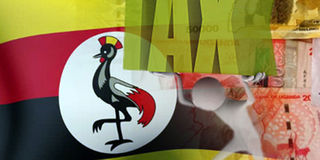State enterprises can help lift tax burden on citizens

Citizens crying foul, the Executive is playing a blame game, the Legislature is conceding impotence, the Judiciary is keeping fingers crossed and the economy is uncertain.
What you need to know:
- But amidst the storm lies an all injury-proof solution in State Owned Enterprises (SOEs). Any hive whose queen bee is unproductive, is doomed to wreck, so is Uganda.
- When the NRA/NRM took over power, the economic terrain was suitable for privatisation thus the tailoring of the Public Enterprise Reform and Divestiture Act, 1993 regulating the process that has left the country with only 29 SOEs, 12 of which chronically register losses.
The Financial Year 2018/19 is proving to be quite a nightmare. Citizens crying foul, the Executive is playing a blame game, the Legislature is conceding impotence, the Judiciary is keeping fingers crossed and the economy is uncertain.
But amidst the storm lies an all injury-proof solution in State Owned Enterprises (SOEs). Any hive whose queen bee is unproductive, is doomed to wreck, so is Uganda. When the NRA/NRM took over power, the economic terrain was suitable for privatisation thus the tailoring of the Public Enterprise Reform and Divestiture Act, 1993 regulating the process that has left the country with only 29 SOEs, 12 of which chronically register losses.
The unfortunate bit is that the would-be temporary solution now seems to be permanent. But SOEs are a crucial tool for any country with a place in the present and future global economy. About 22 per cent of the top most global firms are SOEs, accounting for more than 10 per cent of the global sales registering more than 3.6 trillion dollars since 2014, covering 20 per cent to 30 per cent of the global economic activities.
The world’s fastest growing economies such as China, have their ocal economy littered with 96 per cent SOEs, taking the sector delicately. I am not suggesting that Uganda should tally such percentages, but the country should also be viably positioned in the area instead of opting to tax citizens dry and borrowing. The government should also consider positioning itself in global economic lines.
It is not contestable that national projects are tainted with vices such as corruption, political barricades, suffocating locals’ businesses, poor legislation, and wasteful expenditures, among others. But at bay lies a sea of solutions such as corporate governance coupled with guidelines of the World Trade Organisation.
Gearing SOEs towards cross border business can ably collect foreign currencies to strengthen the shaky shilling, among a spectrum of other solutions.
Another point to note is that in this economic age, SOEs are no longer a preserve of the central government, but also local governments, municipalities and other political or administrative organisations can lean on SOEs and not look at taxing life out of the local economy. For example, in Germany, more than 80 per cent of the SOEs are owned by the decentralised governments.
Uganda should thus fit into the new dimensions of global economic success and sustainability by looking at SOEs as vital economic pillar that can give the country locus to breed new economic thoughts such as outward foreign direct investment where fellow African countries such as Angola are investing more than $10 billion.
[email protected]




